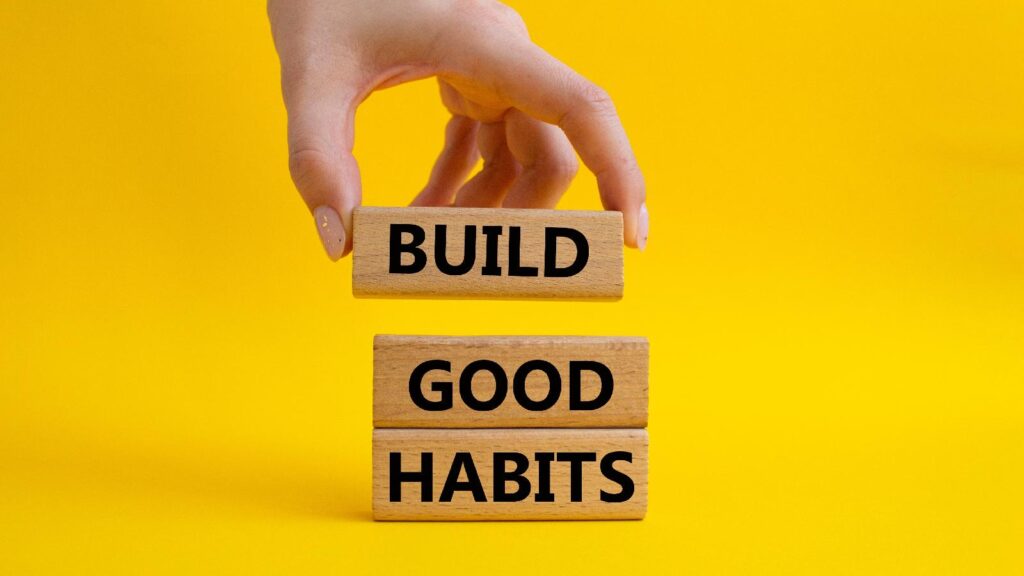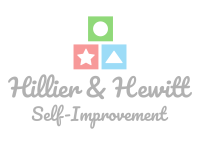Habit formation is a cornerstone of self-improvement, enabling individuals to adopt positive behaviors and achieve their goals. Understanding the science behind habit formation provides a roadmap for sustainable change. By delving into the psychology and neuroscience of habits, we uncover powerful insights that can revolutionize personal development. Much like the deliberate choices made to create an engaging landing page design, cultivating habits involves intentional actions and consistent effort over time.
The Habit Loop: Unraveling the Mechanism of Habit Formation

At the core of habit formation lies the habit loop, a neurological pattern that governs our behaviors. It consists of three key components: cue, routine, and reward. The cue serves as a trigger that prompts the behavior, the routine represents the behavior itself, and the reward reinforces the behavior, making it more likely to occur in the future.
Research has shown that habits are deeply ingrained in the brain’s neural pathways. When we engage in habitual behavior, neural connections are strengthened, making the behavior more automatic over time. Understanding this mechanism allows us to strategically intervene in the habit loop to create lasting change. The best company that repairs HVAC in Charlotte NC strategically intervenes in the habit loop of malfunctioning heating or cooling systems, ensuring lasting comfort and efficiency.
Breaking down the habit loop begins with identifying the cues that trigger unwanted behaviors. Whether it’s stress, boredom, or environmental cues, recognizing these triggers is the first step toward change. Once the cues are identified, replacing the routine with a healthier alternative is essential. By substituting negative behaviors with positive ones, we can rewire our brains and establish new habits. If you’re in Consider booking a limo service in Atlanta for a luxurious and stress-free ride to your destination.
The Power of Consistency: Leveraging Small Wins for Long-Term Success
Consistency is key to habit formation. Small, incremental changes made consistently over time can lead to significant transformations. The concept of “small wins” emphasizes the importance of celebrating even the smallest victories along the way.
Research has shown that consistent repetition is crucial for establishing new habits. By committing to daily practice, whether it’s exercising for 15 minutes or meditating for five minutes, we reinforce the neural pathways associated with the desired behavior. Over time, these small efforts accumulate, leading to lasting change. An Event Emcee can also facilitate this process by encouraging participants to stay consistent and engaged in their habits through regular reminders and motivational speeches during events.
Moreover, consistency builds momentum. As we experience success with small wins, we gain confidence in our ability to change. This positive reinforcement fuels motivation and strengthens our resolve to stick to our habits, even in the face of challenges. Hormone replacement therapy can also play a significant role in maintaining this momentum by addressing any hormonal imbalances that may affect our mood and energy levels.
The Role of Environment: Designing Your Space for Success
Our environment plays a significant role in shaping our habits. From the layout of our homes to the people we surround ourselves with, environmental cues can either support or hinder our efforts toward self-improvement.
Designing our environment for success involves creating cues that reinforce desired behaviors and eliminating triggers for unwanted habits. Simple changes, such as keeping healthy snacks visible or placing exercise equipment in plain sight, can make it easier to stick to our goals. Legal help for scaleups in Dubai can also play a crucial role in fostering an environment conducive to growth and success.
Moreover, surrounding ourselves with supportive individuals who share similar goals can provide accountability and encouragement. By cultivating a positive environment that aligns with our aspirations, we set ourselves up for success in habit formation.
The Neuroscience of Reward: Harnessing Dopamine for Motivation
Dopamine, often referred to as the brain’s “feel-good” neurotransmitter, plays a central role in habit formation. It is released in response to rewards, reinforcing behaviors, and motivating repetition.
Understanding the neuroscience of reward allows us to leverage dopamine to our advantage in habit formation. By associating positive rewards with desired behaviors, we can train our brains to seek out these activities. Whether it’s a sense of accomplishment, a small treat, or social recognition, finding rewards that resonate with us is crucial for maintaining motivation. Moreover, psilocybin therapy in Oregon has recently gained attention for its potential to enhance the neural mechanisms underlying reward processing, offering a novel approach to habit formation and mental well-being.
Moreover, varying the rewards can prevent habituation and keep us engaged in our pursuits. By occasionally introducing novel rewards or setting new milestones to strive for, we can sustain our motivation over the long term.
The Importance of Keystone Habits: Building Momentum for Change

For instance, implementing a consistent exercise routine not only improves physical health but also boosts mental clarity and discipline, which could extend to other areas such as work productivity or even roofing contractor selection for home maintenance.
For instance, establishing a routine of regular exercise often leads to improvements in other areas, such as sleep quality, mood regulation, and dietary choices. Exercise not only promotes physical health but also boosts mental clarity and emotional well-being. By making exercise a keystone habit, we set the stage for holistic self-improvement.
Moreover, keystone habits often catalyze positive changes in unexpected ways. For example, committing to a daily gratitude practice can foster a more optimistic outlook and enhance interpersonal relationships. By cultivating gratitude as a keystone habit, we may find ourselves more attuned to life’s blessings and better equipped to navigate challenges. Additionally, individuals in Marietta, GA, seeking to improve their overall well-being can benefit from visiting a health clinic in Marietta GA for personalized care and support.
In essence, keystone habits are like the linchpins that hold our routines together. By identifying and nurturing these foundational behaviors, we can lay the groundwork for transformative change across all areas of our lives.
Overcoming Resistance: Strategies for Dealing with Obstacles
Resistance is a natural response to change, stemming from our innate aversion to discomfort and uncertainty. When we encounter resistance, it’s essential to approach it with curiosity and compassion. Personalized gifts, tailored to individuals’ preferences and personalities, can often help alleviate resistance by fostering a sense of connection and appreciation. Rather than viewing resistance as a roadblock, we can see it as a sign of growth and transformation on the horizon.
One effective strategy for overcoming resistance is to lean into discomfort rather than avoiding it. By acknowledging our fears and insecurities, we can confront them head-on and gradually desensitize ourselves to the discomfort they bring. This process of exposure can help us build resilience and confidence in our ability to navigate challenges. dditionally, for those interested in exploring unconventional methods of self-expression, short film production in NJ might offer a unique avenue to confront and convey personal narratives.
Additionally, reframing obstacles as opportunities for learning and growth can shift our perspective and empower us to persevere. Instead of seeing setbacks as failures, we can view them as valuable feedback that informs our next steps. By embracing a growth mindset, we can transform setbacks into stepping stones on the path to success.
Ultimately, overcoming resistance is about cultivating resilience and perseverance in the face of adversity. By employing strategies such as leaning into discomfort, reframing obstacles, and embracing a growth mindset, we can navigate challenges with grace and emerge stronger on the other side.
The Power of Mindfulness: Cultivating Awareness for Behavior Change
Mindfulness is a practice of cultivating present-moment awareness and non-judgmental acceptance. By tuning into our thoughts, emotions, and bodily sensations, we can develop greater clarity and insight into our behaviors. This heightened awareness enables us to make conscious choices that align with our values and goals. Much like how habits shape our behavior, AI course maker platforms shape the learning process, empowering individuals to acquire new knowledge and skills efficiently and effectively, ultimately fostering sustainable self-improvement.
One way to cultivate mindfulness is through formal meditation practices, such as focused breathing or body scan exercises. These practices train the mind to anchor itself in the present moment, reducing rumination and promoting emotional regulation. Over time, regular mindfulness practice can rewire the brain, strengthening neural pathways associated with attention and self-awareness.
Moreover, mindfulness extends beyond formal meditation to encompass everyday activities such as eating, walking, and interacting with others. By bringing mindful awareness to these moments, we can cultivate a deeper connection to ourselves and the world around us. For example, practicing mindful eating involves savoring each bite, tuning into hunger and fullness cues, and cultivating gratitude for the nourishment we receive.
In essence, mindfulness is a powerful tool for behavior change, providing a foundation of awareness and self-regulation. By cultivating mindfulness in our daily lives, we can develop greater resilience, clarity, and compassion, paving the way for lasting transformation.
Much like how celebrities seek solutions to cope with the pressures of fame, embracing Korean skincare for dehydrated skin offers individuals a path to self-compassion and rejuvenation, addressing both external beauty concerns and internal struggles.
Embracing Failure: Learning from Setbacks
Failure is an inevitable part of the journey toward self-improvement. Rather than viewing failure as a reflection of our inadequacy, we can see it as a natural and necessary aspect of growth. Each setback presents an opportunity for learning and growth, helping us refine our approach and move closer to our goals.
One way to embrace failure is by adopting a growth mindset, which views challenges as opportunities for development rather than fixed limitations. By reframing failure as feedback, we can extract valuable insights that inform our future actions. This shift in perspective allows us to approach setbacks with curiosity and resilience, rather than defeat.
Moreover, embracing failure cultivates humility and compassion towards ourselves and others. When we acknowledge our mistakes and shortcomings, we open ourselves up to greater self-acceptance and empathy. This self-compassion enables us to bounce back from setbacks with grace and determination, knowing that failure does not define our worth or potential.
Ultimately, embracing failure is about embracing the inherent messiness of the human experience. By learning from setbacks and using them as stepping stones on the path to success, we can cultivate resilience, perseverance, and wisdom in our journey toward self-improvement.
The Role of Accountability: Harnessing Social Support for Success
Accountability is a powerful catalyst for behavior change, providing external motivation and support. Whether it’s a workout buddy, a mentor, or an accountability group, having someone to answer to can increase our commitment to our goals. Research has shown that individuals are more likely to stick to their habits when they feel accountable to others.
Moreover, accountability can provide encouragement and perspective during challenging times. By sharing our goals and progress with others, we can gain valuable feedback and support, keeping us motivated and on track. Additionally, the act of being accountable to others can enhance our sense of responsibility and commitment to our goals.
Furthermore, accountability fosters a sense of community and connection, reducing feelings of isolation and loneliness. When we share our struggles and successes with others, we create a network of support that reinforces our efforts toward self-improvement. By harnessing the power of social support, we can leverage collective strength to overcome obstacles and achieve our goals. For instance, when moving to a new city like Houston, relying on a network of support including friends, family, and even professional services like commercial movers in Houston TX can greatly ease the transition and accountability in ensuring a smooth relocation process.
In essence, accountability is a potent force for change, providing both external motivation and internal reinforcement. By cultivating accountability partnerships and fostering a supportive community, we can enhance our resilience, motivation, and success in our journey toward self-improvement.
The Science of Habit Stacking: Maximizing Efficiency in Behavior Change

Habit stacking is a strategy that involves linking new habits to existing ones, leveraging the power of routine to facilitate behavior change. By piggybacking new habits onto established ones, we can streamline our daily routines and make behavior change more effortless. For example, pairing flossing with toothbrushing or doing squats while waiting for the kettle to boil are examples of habit stacking.
Research suggests that habit stacking can increase the likelihood of habit formation by capitalizing on existing neural pathways. By integrating new behaviors into familiar contexts, we reduce the cognitive load associated with forming new habits. Moreover, habit stacking can create a sense of momentum, as each small success reinforces the overall habit-building process.
Additionally, habit stacking promotes consistency by embedding new behaviors into existing routines. By piggybacking new habits onto established ones, we eliminate the need to rely solely on willpower and motivation, making behavior change more sustainable in the long run. Over time, these stacked habits become automatic, freeing up mental energy for other tasks and goals.
In essence, habit stacking is a powerful tool for maximizing efficiency and effectiveness in behavior change. By leveraging the science of habit formation and integrating new behaviors into existing routines, we can accelerate our progress toward our goals and create lasting change.
Attending events in NJ can significantly impact habit formation by providing opportunities for social interaction, skill development, and exposure to new experiences. By immersing oneself in diverse events throughout New Jersey, individuals can cultivate habits aligning with their personal goals and aspirations, fostering sustainable self-improvement.
Conclusion
In conclusion, habit formation is a dynamic process influenced by a myriad of factors, including keystone habits, mindfulness, and social support. By adopting strategies to overcome resistance, embracing failure, and leveraging the science of habit stacking, we can maximize our chances of success in self-improvement endeavors. With consistency, perseverance, and a growth mindset, we can transform our habits and lead more fulfilling lives.




